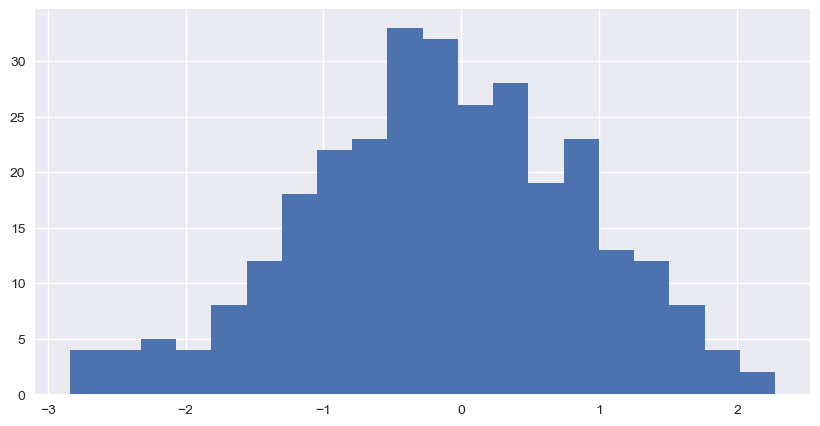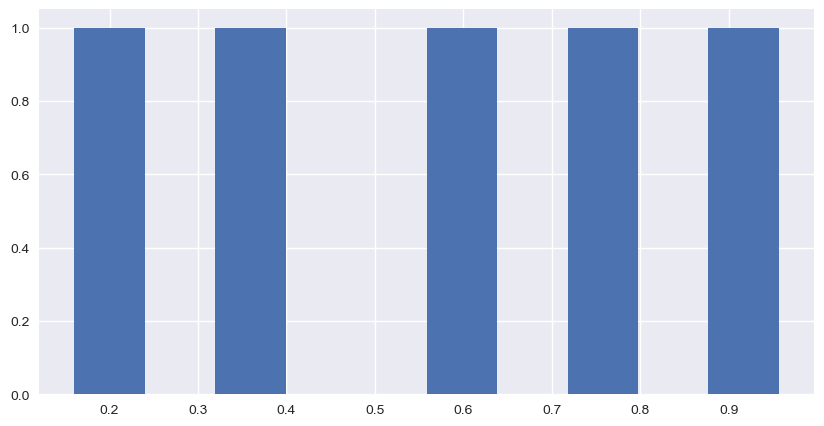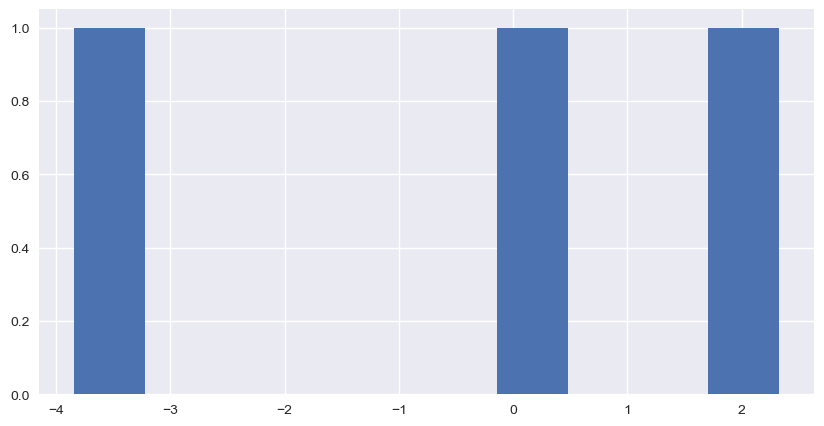import numpy as np
# 파이썬 일반적인 더하기 연산
u = [1, 2, 3]
v = [4, 5, 6]
print(f"plus list = {u + v}")
# 벡터 덧셈 구현
plus1 = [
u_val + v_val
for (u_val, v_val) in list(zip(u, v))
]
print(f"plus vector = {plus1}")
# Numpy를 이용한 벡터 덧셈 (Numpy의 연산자 오버로딩)
plus_np = np.array(u) + np.array(v)
print(f"plus vector (np) = {plus_np}")
plus list = [1, 2, 3, 4, 5, 6]
plus vector = [5, 7, 9]
plus vector (np) = [5 7 9]
import numpy as np
empty_tensor = np.array([[[],[]],[[],[]]])
print(f"tensor shape: {empty_tensor.shape}")
print(f"tensor size: {empty_tensor.size}") # 2 x 2 x 0
tensor = np.array([[[1],[2]],[[3],[4]]])
print(f"tensor shape: {tensor.shape}")
print(f"tensor size: {tensor.size}") # 2 x 2 x 1
tensor shape: (2, 2, 0)
tensor size: 0
tensor shape: (2, 2, 1)
tensor size: 4
import numpy as np
tensor = np.array([[[1],[2]],[[3],[4]]])
print(f"shape = {tensor.shape}")
print(
"reshape:\n",
np.reshape(tensor, (1, 2, 2))
)
print(
"reshape:\n",
np.reshape(tensor, (1, 2, -1))
)
shape = (2, 2, 1)
reshape:
[[[1 2]
[3 4]]]
reshape:
[[[1 2]
[3 4]]]
[[[0. 0.]
[0. 0.]
[0. 0.]]
[[0. 0.]
[0. 0.]
[0. 0.]]
[[0. 0.]
[0. 0.]
[0. 0.]]
[[0. 0.]
[0. 0.]
[0. 0.]]]
[[[1. 1.]
[1. 1.]
[1. 1.]]
[[1. 1.]
[1. 1.]
[1. 1.]]
[[1. 1.]
[1. 1.]
[1. 1.]]
[[1. 1.]
[1. 1.]
[1. 1.]]]
[[[40 40]
[40 40]
[40 40]]
[[40 40]
[40 40]
[40 40]]
[[40 40]
[40 40]
[40 40]]
[[40 40]
[40 40]
[40 40]]]
[ 0 1 2 3 4 5 6 7 8 9 10 11 12 13 14]
[15 16 17 18 19]
[15 17 19]
import numpy as np
print(
"(1):\n",
np.random.normal(
loc=0, # 평균
scale=5, # 표준편차
size=10 # 갯수
)
)
print(
"(4, 2):\n",
np.random.normal(
loc=[0, 1], # 평균 / Union[bool, int, float]
scale=[1, 5], # 표준편차 / Union[bool, int, float]
size=(4, 2) # 갯수 / _ShapeLike = Union[SupportsIndex, Sequence[SupportsIndex]]
)
) #
(1):
[-1.95731126 -1.90675734 6.17352222 16.02351182 1.48539524 11.16237614
-6.55725407 1.43203681 9.44325562 7.82157837]
(4, 2):
[[ -0.54754113 0.26006383]
[ -1.81259151 -11.64953749]
[ -0.70481288 -2.02977314]
[ -1.12333622 -7.81040641]]
[ 0 1 2 3 4 5 6 7 8 9 10 11 12 13 14 15]
[0, 1, 2, 3, 4, 5, 6, 7, 8, 9, 10, 11, 12, 13, 14, 15]
import numpy as np
a = np.random.randint(1, 5, (5, ))
b = np.random.randint(1, 5, (5, ))
print("a: ", a)
print("b: ", b, "\n")
print("a + b: ", a.__add__(b))
print("a - b: ", a.__sub__(b))
print("a * b: ", a.__mul__(b))
print("a / b: ", a.__truediv__(b))
print("a // b: ", a.__floordiv__(b))
print("a % b: ", a.__mod__(b))
print("a ** b: ", a.__pow__(b))
a: [1 1 2 1 1]
b: [3 3 3 3 3]
a + b: [4 4 5 4 4]
a - b: [-2 -2 -1 -2 -2]
a * b: [3 3 6 3 3]
a / b: [0.33333333 0.33333333 0.66666667 0.33333333 0.33333333]
a // b: [0 0 0 0 0]
a % b: [1 1 2 1 1]
a ** b: [1 1 8 1 1]
import numpy as np
M = np.random.randint(1, 5, (2, 3))
N = np.random.randint(1, 5, (2, 3))
print("M: \n", M)
print("N: \n", N, '\n')
print("M + N: \n", M + N)
print("M - N: \n", M - N)
print("M > N: \n", M > N)
print("M >= N: \n", M >= N)
M:
[[3 2 3]
[3 2 2]]
N:
[[2 1 1]
[2 3 2]]
M + N:
[[5 3 4]
[5 5 4]]
M - N:
[[ 1 1 2]
[ 1 -1 0]]
M > N:
[[ True True True]
[ True False False]]
M >= N:
[[ True True True]
[ True False True]]
(3, 3)
(1, 3)
[[ 0 11 22]
[ 3 14 25]
[ 6 17 28]]
import numpy as np
shape = (2, 3, 3)
tensor1 = np.random.normal(loc=0, scale=5, size=shape)
tensor2 = np.linspace(start=0, stop=5, num=9).reshape(1, 3, 3)
print(tensor1 + tensor2)
[[[ 9.12953843 1.47175842 12.00193402]
[ 6.64098985 -4.40916224 5.29706066]
[ 0.95522031 4.3088853 5.61501793]]
[[-1.28809693 5.12414976 0.70989106]
[ 3.16516936 -2.63488555 -4.27342152]
[ 4.68412939 -2.31744839 7.01588788]]]
tensor_3:
[[[0. 0. 0. 0.]
[0. 0. 0. 0.]
[0. 0. 0. 0.]]
[[0. 0. 0. 0.]
[0. 0. 0. 0.]
[0. 0. 0. 0.]]]
tensor_2:
[[1.]
[1.]
[1.]]
sum:
[[[1. 1. 1. 1.]
[1. 1. 1. 1.]
[1. 1. 1. 1.]]
[[1. 1. 1. 1.]
[1. 1. 1. 1.]
[1. 1. 1. 1.]]]
tensor_3d:
[[[ 0 1 2]
[ 3 4 5]
[ 6 7 8]]
[[ 9 10 11]
[12 13 14]
[15 16 17]]
[[18 19 20]
[21 22 23]
[24 25 26]]]
tensor_3d[0][0][0]: 0
tensor_3d[:2][0]: [[0 1 2]
[3 4 5]
[6 7 8]]
tensor_3d[:2][0][:2]: [[0 1 2]
[3 4 5]]




Comments